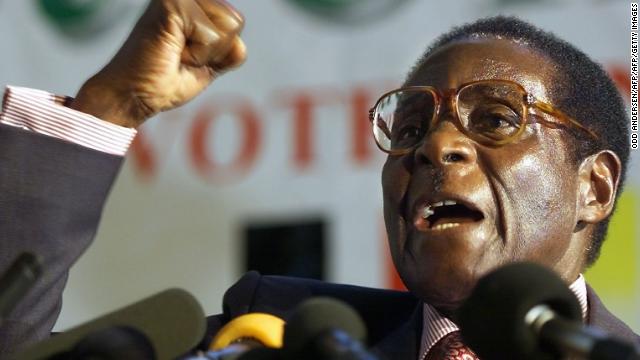
Robert Mugabe, whose death was announced Friday, began his political career as a leader in the quest for the independence of Zimbabwe -- then known as Rhodesia -- and was regularly compared to South Africa's venerated freedom fighter Nelson Mandela.
As a revolutionary guerrilla leader, he fought white-minority rule and spent years in jail as a political prisoner.
In the mid-70s, he assumed leadership of the political wing of the Zimbabwe African National Union (ZANU-PF), a militant liberation movement based in Mozambique.
From there, he helped orchestrate an armed resistance against white rule, emerging as a war hero both at home and abroad when the conflict ended in 1979.
He became the first prime minister of the newly independent Zimbabwe after elections in February 1980. But the descent into tyranny didn't take long.
His hardline policies drove the country's flourishing economy to disintegrate after a program of land seizures from white farmers, and agricultural output plummeted and inflation soared.
By 1983, it became clear that Mugabe's administration would be merciless to any one opposing his rule. He presided over forces that carried out a string of massacres in opposition strongholds, and the country's Fifth Brigade is believed to have killed up to 20,000 people, mostly supporters of Mugabe's main political rival.
As the country was plunged into economic ruin, Mugabe and his wife faced fierce criticism for leading lavish lifestyles.
He celebrated his 85th birthday with a lavish party that cost a reported $250,000, even as the country remained in an economic and health crisis. He continued to hold such birthday events annually, last year spending a reported $800,000 and celebrating in a region suffering drought and food shortages.
He repeatedly rebuffed repeated calls to step down, insisting he would only leave office when his "revolution" was complete.
Read more here.
from CNN.com - RSS Channel kalo berita gak lengkap buka link disamping https://ift.tt/310l2mp
No comments:
Post a Comment